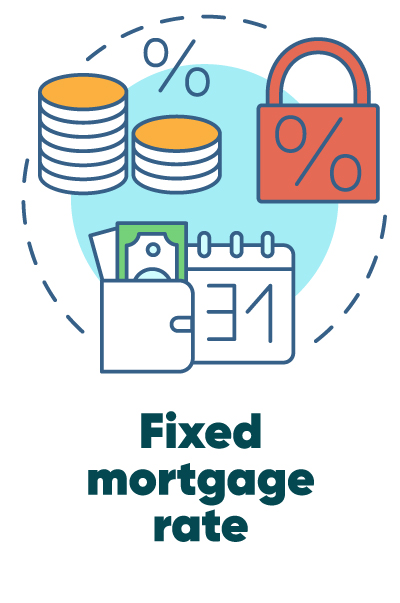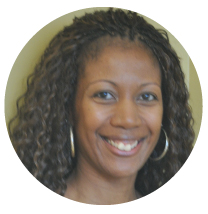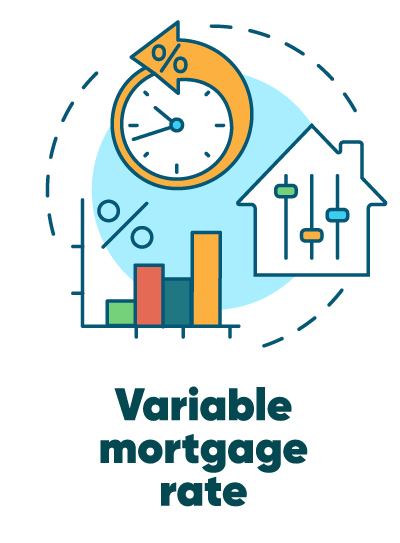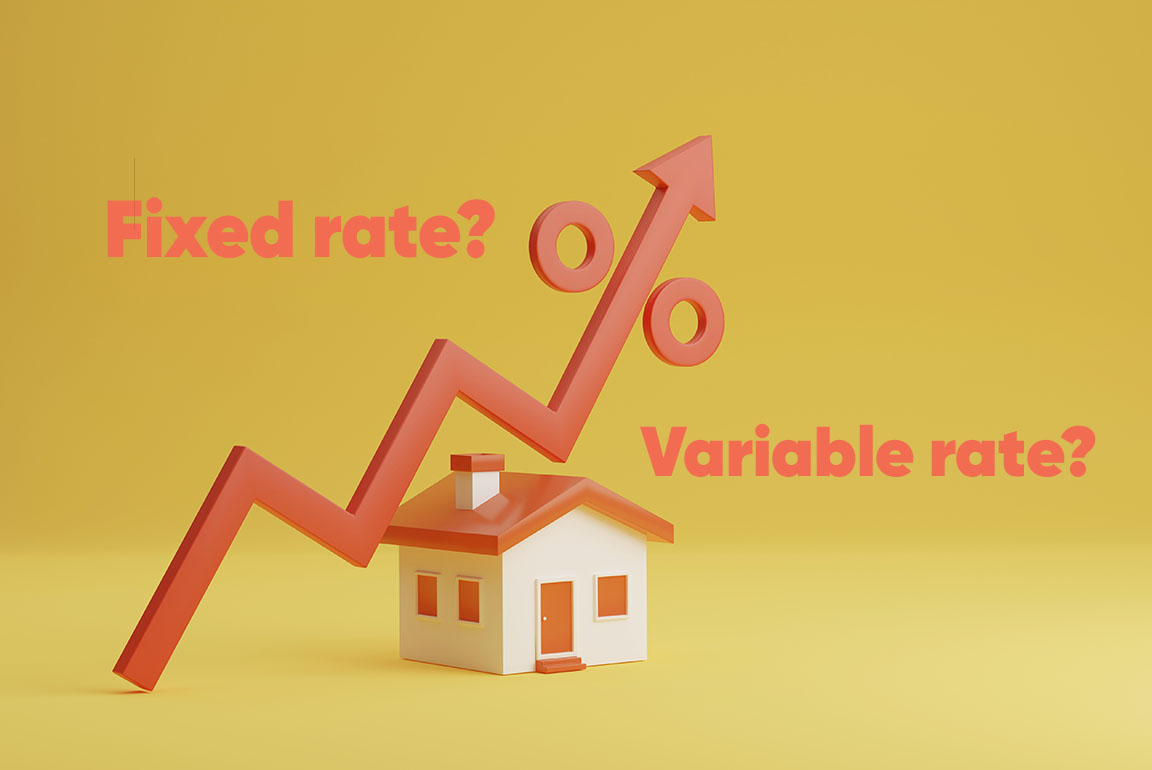Posted: July 20, 2023 by Helen Burnett-Nichols in Borrow, Money tips, fixed mortgage rate, variable mortgage rate
Variable vs. fixed rate mortgages: Everything you need to know
When choosing a mortgage, comparing a fixed vs. variable mortgage rate has become a tough task in an era of rising interest rates.
Interest rates have been low for a decade-and-a-half and, especially when they were extremely low — most recently, from mid-2020 until 2022 — many Canadians who bought their first home or renewed a mortgage chose a variable rate, with this option making up more than half of mortgages in Canada at one point last year.

But this trend is slowing, according to data from the Canada Mortgage and Housing Corporation (CMHC). The popularity of variable-rate mortgages is dipping as rates climb and more borrowers seek shorter-term, fixed rate options.
In an uncertain economic environment, is there a clear-cut choice for homebuyers?
Weighing options: fixed vs. variable mortgage rate

Glenda Bahalla, Financial Advisor at ACU’s Regent branch, explains that it’s important to put today’s rates into perspective. The rate is only one part of your overall plan when deciding on a type of mortgage.
“The coming 25 years are not going to be like this,” she explains. “There are times that the rate may go up, like we are seeing now, but it’s only two years of your mortgage life.”
Ultimately, deciding whether a fixed or variable rate mortgage is right for you (and even the type of fixed or variable mortgage) depends on your individual circumstances. This can include factors such as your risk tolerance, future moving plans and overall budget.

How much mortgage can I afford?
6 mortgage tips for first-time homebuyers
Before you make a choice, it’s a good idea to take a closer look at some of the benefits, drawbacks and considerations of fixed- and variable-rate mortgages.
The basics of a fixed mortgage rate

With a fixed mortgage rate, the rate you agree on is locked in for the term of your mortgage. Your payments will stay the same, regardless of whether interest rates rise or fall.
This is a positive for members looking for certainty when it comes to their mortgage payment each month. The downside? You won’t be able to take advantage of rate decreases if they occur during your mortgage term.

“A fixed mortgage rate is stable for the entire term. It’s predictable,” says Marsharee Lindsay, Financial Advisor with ACU’s Pembina branch. “There’s a lot of members who like that they can budget for the same amount every month. That peace of mind can be valuable.”
The basics of a variable mortgage rate

When you choose a variable mortgage rate, your interest rate is less predictable, as it goes up or down depending on your lender’s prime rate (which is ultimately influenced by the Bank of Canada’s policy interest rate). A variable rate is expressed as the prime rate, plus or minus a certain percentage, and this relationship will stay consistent throughout your term.
The rate of interest you pay has the potential to change several times during the mortgage term. For homeowners who select this option, they may face a tighter budget when rates increase. Conversely, it can be helpful when rates decline and their mortgage amount in those months is not as costly.
“Ask yourself how you react to rising inflation and fluctuating rates. How do you cope emotionally? Would it drastically affect your day-to-day life? If you’re worried about the impacts of a variable rate, it may not be the best option,” says Glenda.
Variable-rate mortgages come in two types: fixed payment and variable payment.
Fixed payment mortgages have monthly payments set at a fixed amount for the entire term of the loan. You will pay the same each month, regardless of the changes in interest rate. If interest rates rise, more of that fixed payment will go to the interest portion. If rates fall, more of your payment will go toward your principal.
Variable payments change based on the interest rate. If interest rates rise, your payment will increase; if rates fall, your payment will decrease. The percentage going toward the principal will likely remain constant. In this case, you will need some leeway in your budget for those periods when payments might be higher.
Many variable-rate mortgages come with the option to lock into a fixed rate at any time.
The flexibility factor: Open vs. closed terms
Beyond the question of a fixed vs. variable mortgage rate, consider whether you’d like the ability to pay off part or all of your mortgage before the end of your term. That’s where open and closed term mortgages come into play.
This could be an important point if you anticipate receiving lump sums such as tax refunds, commission payments, bonuses, additional property sales or an inheritance.
Open-term mortgages are flexible and are generally offered at higher interest rates than their closed counterparts. They allow members to make additional payments or repay the mortgage in full at any point during the term, without facing any penalties.
With a closed-term mortgage, you will likely benefit from a lower rate, but the repayment terms are more restrictive. With this option, you’ll likely face penalties if you want to repay your mortgage in full before the end of your term, refinance to take advantage of a lower rate or break your mortgage contract.
Fixed vs. variable mortgage rate—how do I decide which is best?

Every borrower is different. When applying for a mortgage, your ACU mortgage specialist will look at all current options for fixed and variable rates. They can run custom calculations to find out what your payments will look like—as well as how much you’ll pay towards your principal and in interest. Calculations will depend on factors such as:
● the rate and term
● the amortization period
● the frequency of your payments
● the amount of your down payment
Combined with your current financial situation and future plans, your mortgage specialist can then recommend the most cost-effective options.
“We are going to look at the situation holistically. We’re not going to try to fit you into a box based on one or two questions,” says Marsharee. “Members have different comfort levels and needs, and we want to make sure whatever you choose is going to be best suited to you and your situation.”
If you’re ready to explore mortgage options tailored to your budget, goals and plans, talk to an ACU mortgage specialist today to get started.

Up Next
Borrow, Money tips
Read more ›
10 steps to buying your first home
Buying a new home in Winnipeg can be an exciting time. After all, you can finally move into a place to call your own—whether you’re leaving that long-term rental property,…
Community stories
Read more ›
Sustainability: How ACU is turning words into action
A hand holding a seedling
Community stories
Read more ›
ACU’s grants program invests locally
Healthy, vibrant and diverse communities don’t just happen—they’re created over time by people, organizations and businesses continuously working together for the common good. These organizations require resources to take action…




